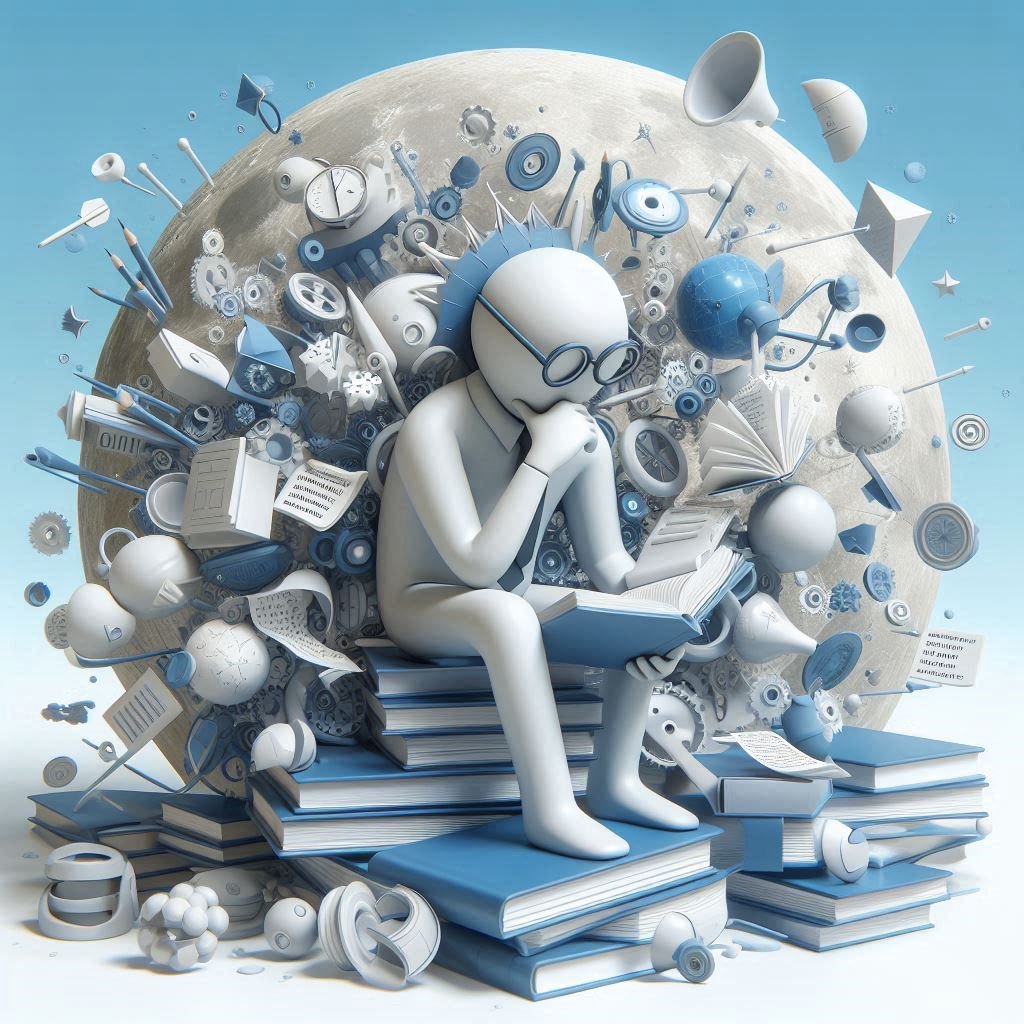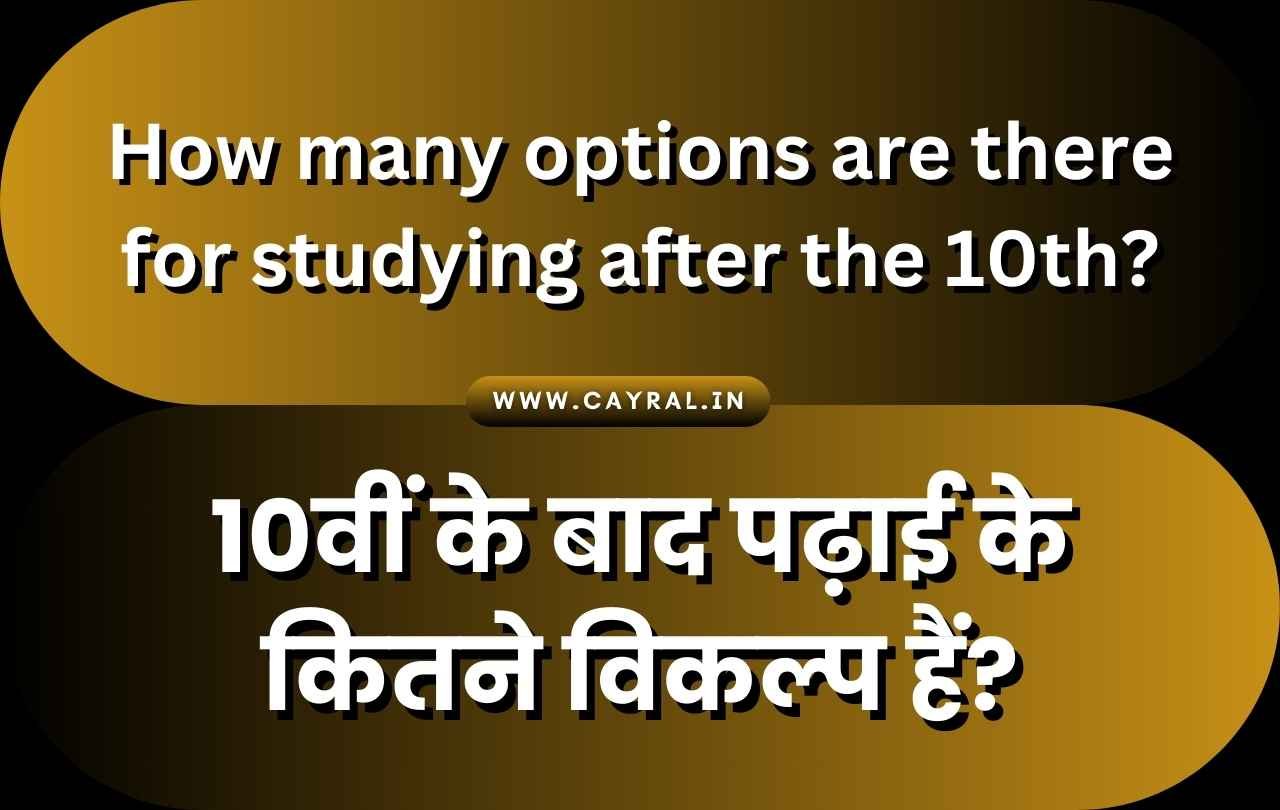Completing Class 10 is a crucial milestone in a student’s academic journey. The choices made after the 10th grade shape future career opportunities. Many students and parents ask, “How many options are there for studying after the 10th?” The answer depends on interests, career goals, and academic strengths.
How many options are there for studying after the 10th?
This article explores all available…
- streams,
- courses, and
- alternative education options
… after Class 10 to help students make informed decisions.

1. Traditional Academic Streams
After Class 10, students can opt for one of the three primary academic streams:
a) Science Stream
- Best for students interested in Engineering, Medicine, and Research.
- Divided into:
- PCM (Physics, Chemistry, Mathematics) – Suitable for careers in Engineering, Architecture, and Data Science.
- PCB (Physics, Chemistry, Biology) – Ideal for careers in Medicine, Biotechnology, and Pharmacy.
- PCMB (Physics, Chemistry, Mathematics, Biology) – Provides flexibility for both Engineering and Medical fields.
b) Commerce Stream
- Best for students interested in Business, Finance, and Economics.
- Key subjects include Accountancy, Economics, Business Studies, and Mathematics.
- Career paths: Chartered Accountancy (CA), Banking, Finance, and Business Administration.
c) Arts/Humanities Stream
- Suitable for students interested in History, Political Science, Psychology, Literature, and Social Sciences.
- Career opportunities include Journalism, Law, Civil Services, Teaching, and Design.
2. Diploma Courses After 10th
For students looking for skill-based education and early employment opportunities, diploma courses provide a great alternative. Some popular choices include:
- Engineering Diplomas (Mechanical, Electrical, Civil, Computer Science)
- Medical Diplomas (Nursing, Pharmacy, Lab Technician)
- IT & Software Diplomas (Web Development, Cyber Security, Graphic Design)
- Fashion & Design Diplomas (Interior Design, Fashion Technology)
- Hotel Management & Catering Diplomas
- Travel & Tourism Diplomas
Diplomas typically last 2-3 years and provide practical knowledge along with job opportunities.
3. Vocational Courses (Skill-Based Learning)
The Indian government offers NSQF (National Skills Qualification Framework) programs to provide hands-on training in different industries. Some options include:
- Beauty & Wellness Courses (Makeup, Hair Styling, Skin Care)
- Automobile Mechanics
- Retail Management
- Digital Marketing & Social Media Management
- Photography & Videography
These courses help students gain certifications and industry-ready skills without requiring a full-time academic commitment.
4. Polytechnic Courses
Polytechnic institutions offer technical education leading to diplomas and certifications in:
- Engineering (Civil, Mechanical, Electrical, Computer Science)
- Textile Technology
- Automobile Engineering
- Fashion & Interior Design
Polytechnic courses are a great way to enter technical fields without pursuing a full-time degree course.
5. ITI (Industrial Training Institutes) Courses
ITI courses focus on hands-on training in various trades and are recognized by the National Council for Vocational Training (NCVT). Some popular ITI trades include:
- Electrician & Fitter
- Plumbing & Welding
- Motor Mechanic
- Carpentry & Masonry
- Computer Operator & Programming Assistant (COPA)
Most ITI courses last between 6 months to 2 years, providing job-oriented skills.
6. Open Schooling & Distance Education
For students who wish to continue their education without attending regular school, options like National Institute of Open Schooling (NIOS) and State Open Schools are available.
- Suitable for students who want flexible learning schedules.
- Helps those preparing for competitive exams like JEE, NEET, or government jobs while studying.
- Courses available in Science, Commerce, Arts, and Vocational streams.
7. Integrated & Foundation Courses
Some students prefer to prepare early for competitive exams like JEE, NEET, UPSC, or CA by joining integrated coaching programs along with their +2 education. Options include:
- Integrated JEE/NEET Coaching with regular schooling.
- CA Foundation Courses for Commerce students.
- UPSC Foundation Programs for aspiring civil servants.
8. Short-Term Certificate Courses
For students who want to learn specialized skills quickly, there are various certificate courses available in:
- Digital Marketing & SEO
- Foreign Languages (French, German, Spanish, Japanese, Korean)
- Coding & Programming (Python, Java, Web Development)
- Graphic Design & Animation
- Photography & Video Editing
These courses, available online and offline, can help students start freelancing or get early job opportunities.
9. Military & Defense Career Paths
Students who want to join the Indian Armed Forces can consider:
- National Defence Academy (NDA) Exam – After 12th (Science with PCM)
- Indian Navy (SSR & AA Entry) – After 10th
- Indian Army Technical Entry Scheme (TES)
These paths offer prestigious career opportunities in defence services.
10. Entrepreneurship & Freelancing
Students passionate about starting their own business can explore:
- E-commerce & Dropshipping
- Freelancing (Writing, Graphic Design, Video Editing, Coding)
- YouTube & Social Media Influencing
- Stock Market & Crypto Trading (With Caution)
Many successful entrepreneurs start early and learn through experience, making self-employment a viable option.

Final Thoughts – Which Path is Right for You?
With so many choices available, selecting the right option after the 10th depends on:
✔️ Interests & Strengths – Choose subjects or skills that excite you.
✔️ Career Goals – Plan for long-term growth and stability.
✔️ Financial Situation – Consider affordability and job prospects.
✔️ Future Study Plans – Think about whether you want to pursue further education after +2.
🚀 Make the right decision today and shape your future!


Leave a Reply
You must be logged in to post a comment.